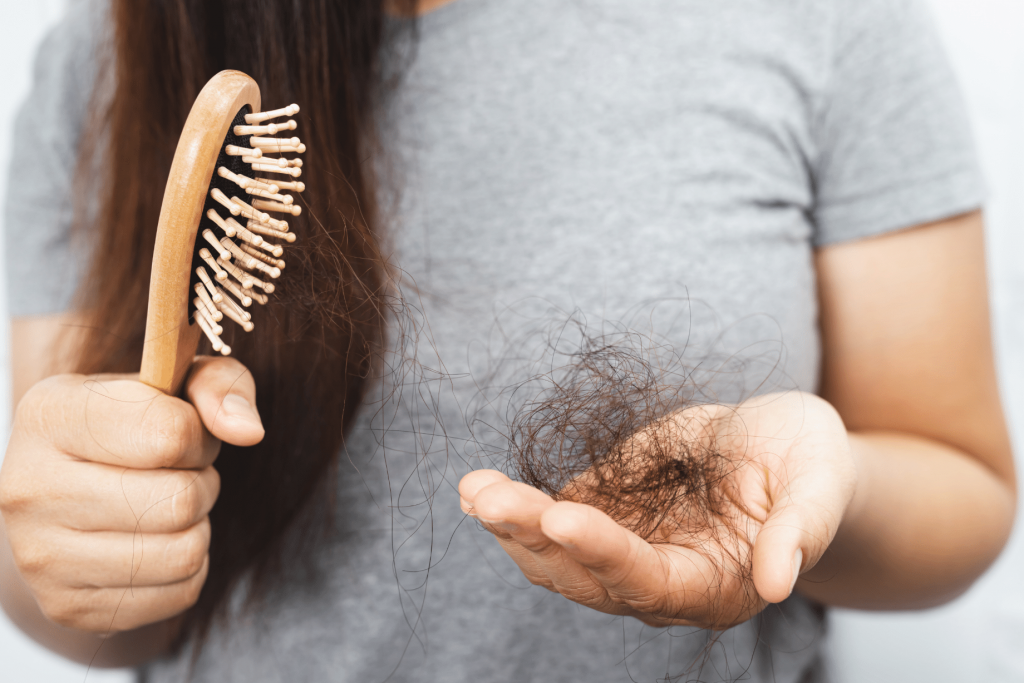August is ‘Hair Loss Awareness Month’ and this annual campaign provides a timely opportunity to raise the importance of discussing hair loss and the impact it can have on patients’ lives (whether male, female and whatever their age).
Here, the Chair of the Institute of Trichologists, Eva Proudman, helps to open up the conversation around hair loss and tries to tackle the taboo with her pragmatic advice, tips and sensitive approach to a condition which affects around 8million women in the UK and around 85% of men at some point in their lives:
“Hair loss can be such a debilitating condition, something which I see on a regular basis. It can also cover a wide spectrum of conditions, some of which can be addressed relatively simply, others requiring more complex treatment and investigation.
“It’s important to begin by recognising the cause of the hair loss, looking at and discussing the options with your patient, so that they understand and have a realistic expectation of the outcome, whether that is treating the condition, managing it, or looking to cover the affected area.
“Hair loss can have many different underlying causes; it can be genetic, a sensitivity to androgens, (male hormones, Testosterone), lower than required dietary intake of protein, illness, stress or trauma. Health conditions such as thyroidism, diabetes, circulatory disorders are amongst the most common factors that can impact the heath of hair and scalp – with much focus recently on the effect of the menopause (and perimenopause) on potential hair loss and thinning.
“It’s also really important to be able to understand that hair loss can leave people feeling desperately alone, so a supportive network is essential to help people find options to provide reassurance and allow them to navigate this difficult time. A good starting point is always to seek the advice a of reputable Trichologist. Trichologists are well trained in understanding and empathising with the psychological impact of hair loss – they know it can be just as impactful as the “visual appearance”. Hair is a such a personal thing – it’s part of who you are, your identity, it can give you confidence, make you feel attractive. All of which can be significantly affected if you are losing your hair.
Eva adds; “Guiding patients through their journey of hair loss and educating them on the options available is a key part of a trichologist’s role. Trichologists can help to improve a patient’s hair and scalp in many different ways. For conditions such as male and female pattern hair loss, photographs and scalp microscope images are taken at the start of treatment and reviewed following 4 -5 months of treatment to see the effect on the hair. This is usually through a topical scalp application, low level laser light therapy and possibly oral medication as well.
“In cases of excessive hair shedding, dietary reviews and appropriate supplements can make a real difference and will often help to recover the hair back to normal.
“Scalp conditions such as seborrheic dermatitis and Psoriasis can really benefit from trichological treatments and specialist shampoos to give relief and respite from these inflammatory recurring scalp conditions.
“But it’s also important to recognise there is always hope and help is available. It’s vital to remove the stigma around hair loss and I’m proud that the collective work of the Institute of Trichologists is playing a key part in this movement. So, why not use ‘Hair Loss Awareness Month’ as an opportunity to share experiences, to talk about hair loss across your platforms and help to normalise the topic.” #hairloss
Help and support can also be found at charities such as Alopecia UK – why not visit their website or go them a follow on social media this month: www.alopecia.org.uk @AlopeciaUK (twitter) @alopeciauk (instagram)

